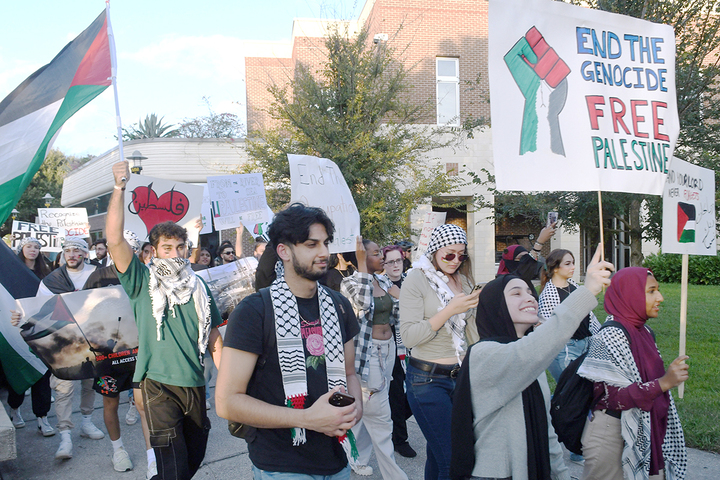Challenges of Balancing Free Speech and Safety on U.S. College Campuses: The Case of the SJP Ban in Florida
This contentious decision by the State University System of Florida comes at a time when campuses across the United States are grappling with the challenge of addressing controversial issues while fostering an atmosphere of respect and understanding. Universities have traditionally been seen as hubs for free expression and critical thinking, where students are encouraged to engage in debates on a wide range of topics. The ban on the Students for Justice in Palestine (SJP) chapters has ignited a wider conversation about how institutions should navigate these complex matters in an increasingly polarized world.
While the decision targets a specific student organization, it raises broader questions about the role of universities in shaping the minds and values of the next generation. Critics argue that by dismantling SJP chapters, the university system risks sending the message that it is more concerned with appeasing political pressures than with nurturing an environment where students can learn, debate, and develop their own perspectives.

Moreover, this move highlights the wider issue of combating hatred and intolerance on campuses. It is essential to acknowledge the concerns about anti-Semitic violence and to work towards fostering tolerance and understanding among all students. However, it remains to be seen whether outright bans are the most effective way to address these concerns or whether there are alternative strategies that can be employed to promote coexistence and peaceful dialogue.
In the coming weeks and months, this decision is likely to continue to provoke debate, both in Florida and across the nation. As universities grapple with the complexities of addressing issues that intersect with political, cultural, and international sensitivities, the balance between maintaining safety and preserving free speech will be at the forefront of these discussions. How institutions choose to navigate these delicate waters will have far-reaching implications, not just for the students directly affected but for the broader landscape of higher education in the United States.
The ban on the Students for Justice in Palestine in Florida reflects the broader challenge faced by educational institutions in an era of increasing polarization and heightened sensitivity to contentious global issues. Campuses have historically been arenas where students can explore diverse viewpoints and engage in critical thinking. However, recent incidents of political and ideological clashes on campuses have put university administrations in the difficult position of balancing freedom of speech with maintaining a safe and inclusive environment.

It is crucial to consider the wider implications of this decision, especially in terms of its impact on political activism among students. Critics argue that such a move could set a troubling precedent, making students hesitant to express their opinions on controversial subjects. While the ban specifically targets SJP, it raises concerns about how other student organizations, irrespective of their viewpoints, may be affected by restrictions on free expression.
This development also underscores the broader challenge of addressing international conflicts on American campuses. The Israel-Hamas conflict is just one example of an issue with deep-rooted historical and political complexities. The decision to ban SJP chapters has ignited discussions on whether American universities are adequately equipped to provide the platforms for constructive dialogue and understanding regarding these complex international matters, or if they should resort to outright bans.

In conclusion, the ban on the Students for Justice in Palestine in Florida raises critical questions about the role of higher education institutions in shaping the discourse on controversial topics. While the intent may be to ensure safety and reduce tensions, it also highlights the delicate balancing act that universities must perform to maintain an environment where diverse perspectives can be heard and discussed without fear of reprisal.
As the ramifications of this decision continue to unfold, it underscores the broader challenges that universities across the United States face in navigating the intersection of free speech, political activism, and sensitive international conflicts in an increasingly polarized world.



